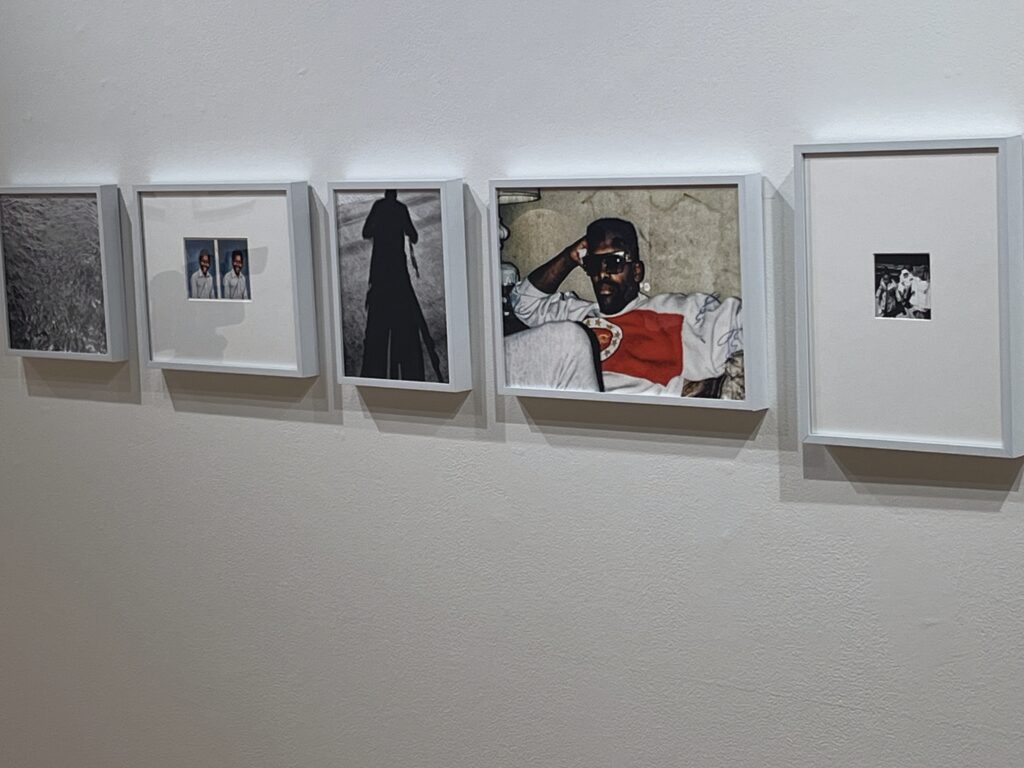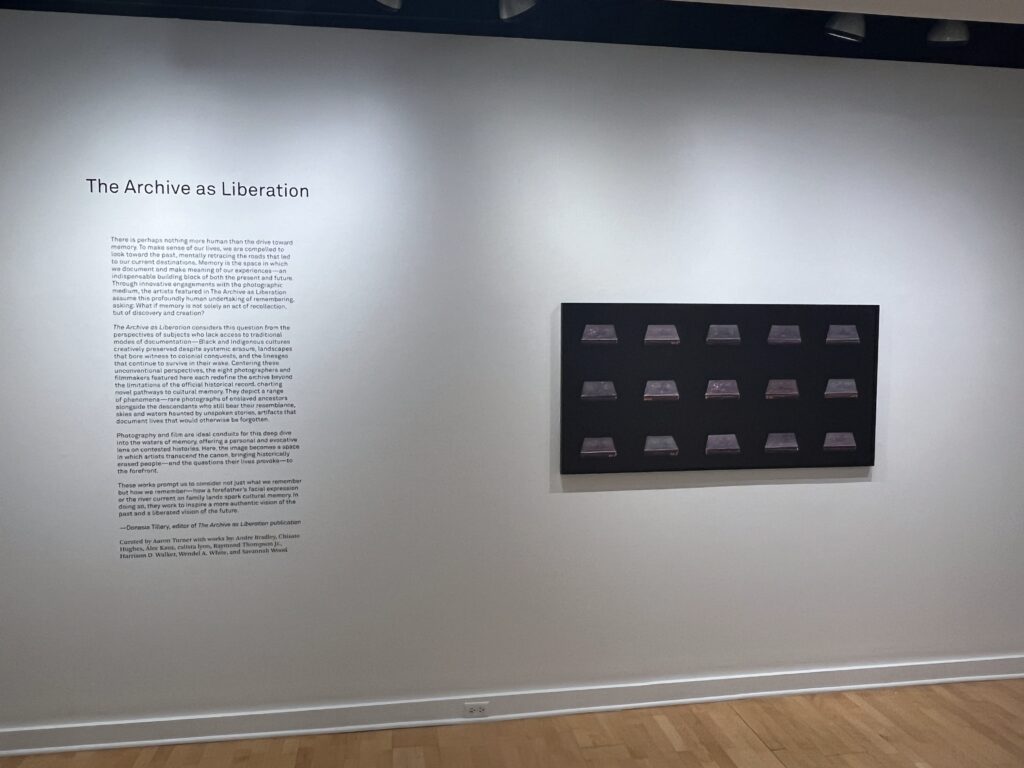VIDEO TRANSCRIPT: The Archive as Liberation
Malachi Washington: With Juneteenth right around the corner, the importance of remembering Black history has never been more timely, and here in Syracuse, art has played a major role in helping to educate
As Juneteenth celebrations have continued through the month, here at Light Work, “The Archive as Liberation” exhibit seeks to flip the script for historic communities who have lacked traditional modes of representation.
The exhibit features art from eight artists, who use a mixture of photography, video, and historical documents to highlight the importance of memory for Black and Indigenous communities who have had their history systemically erased
For Cali Banks, the communications coordinator at Light Works, the inclusion of photo and video isn’t a meaningless choice, and she says it ties into the broader need for education on Black history.
Cali Banks: I think that it’s really important to have exhibitions like this just to show Black history through different lenses, through different people, but also through different modes of media, so a lot of them are photographic archives, but thees also family archives and video archives.
Washington: Banks’ sentiments were shared by members of Syracuse’s Community Folk Arts Center, which has committed itself to the promotion and development of artists of the African diaspora, and believes that art allows for easier consumption of difficult historical topics surrounding American history
Hadassah Onimiya: I believe that art in general allows people to be able to consume tough information in a very manageable way, art has always been culturally political and it provides us with a voice
Washington: “The Archive as Liberation” will be open until August 29th, and for more information visit Lightwork.org. Live from Syracuse Malachi Washington, NCC News.
SYRACUSE, N.Y. (NCC News) — “The Archive as Liberation,” an exhibit which will be running at Light Work until Aug. 29 uses various mediums of art to help chronicle the histories of Black and Indigenous communities that have lacked traditional modes of historical documentation.
The exhibit features art from eight separate artists who each use a mixture of historical documentation, photos, and videos to bring attention to the lost histories of their communities.
For Cali Banks, the communications coordinator at Light Work, the incorporation of historic material in the exhibit is a timely act of rebellion against cultural hegemony.
“It’s important and timely for these artists to show history in their work in the way that they would like to, instead of the way a dominant society is showing the history,” said Banks. “It’s elevating their voices to share what they want the people to know.”

The significance of art in Black history was noted by members of Syracuse’s Community Folk Art Center, which seeks to promote and develop artists of the African Diaspora.
Hadassah Onimiya, the administrative specialist of the center, says that the education surrounding Black history and Juneteenth is an important act for the future of Black liberation.
“Education in our history provides us with knowledge on how to move forward, and it provides us with a level of cultural pride that we need as Black people in America,” said Onimiya.

Her sentiments were shared by Alexia Carr, the marketing outreach coordinator for the center, who says that Juneteenth is a great time to educate people on the history of slavery in the United States, and art is the perfect way to do so.
“From an educational aspect, [Juneteenth] is a great time to learn about Black culture, Black history, the different struggles that have been endured, and slavery in the United States,” said Carr.
“Art is a medium of storytelling and writing our own narratives through visual art, through poetry, through music, and it’s both an expression of pain, but also resilience and collectivity,” she said.
“The Archive As Liberation” will be running at Light Work through Aug. 29, and for more information, you can visit their website at www.Lightwork.org.
